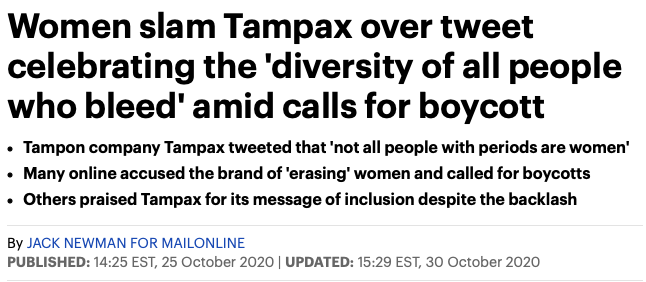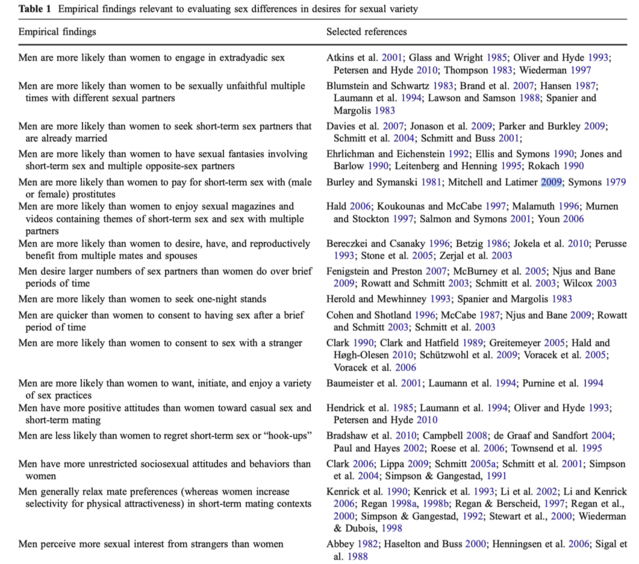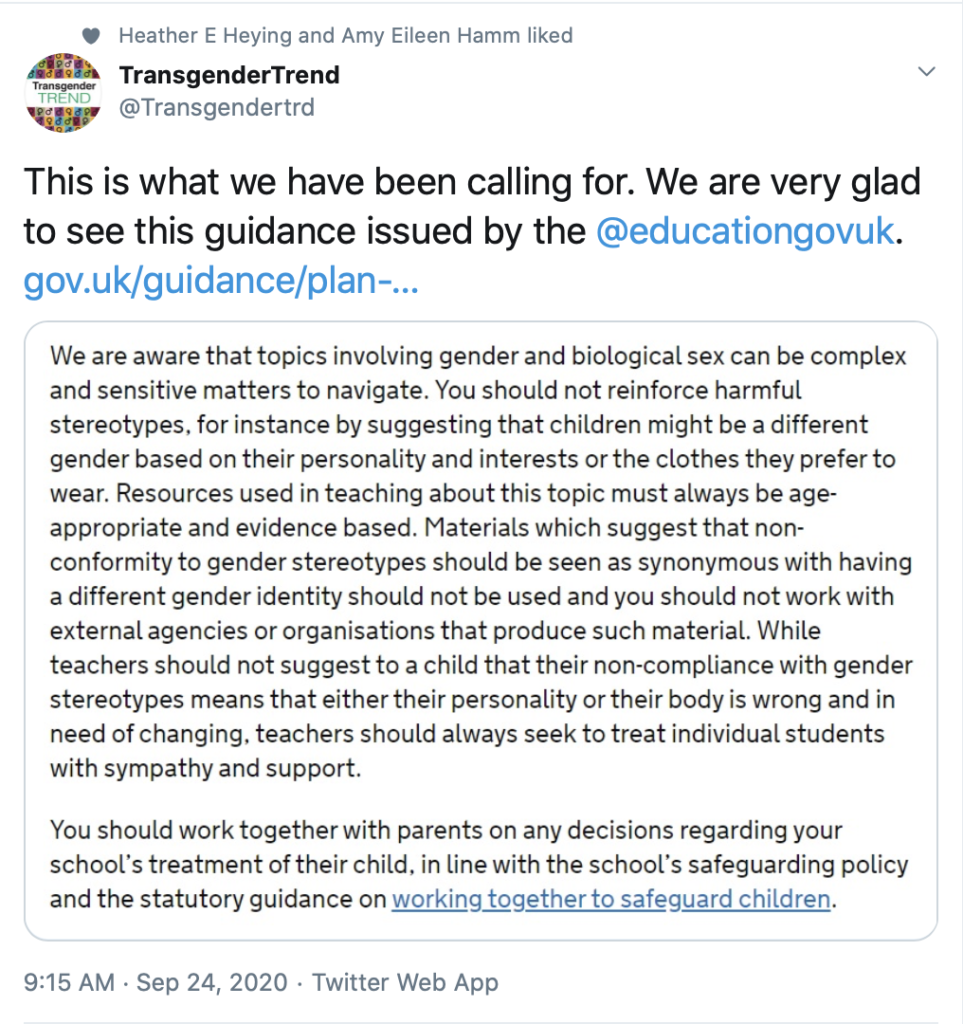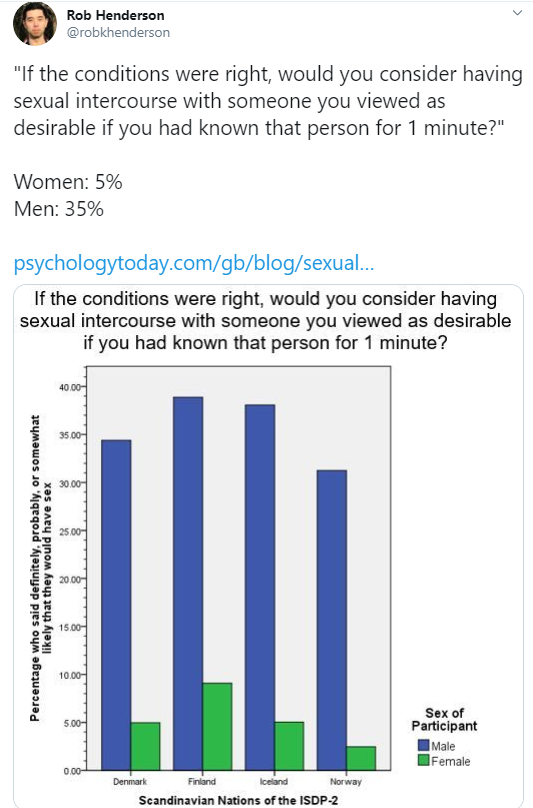There Are Still Only Two Human Sexes
It baffles me that, in furtherance of Woke ideology, so many people are somehow willing to pretend that human animals come in more than two sexes. These pretensions are part of an "antiscientific trend toward the outright denial of biological sex." These arguments often take one of two forms: the argument from intersex conditions and the argument from secondary sex organs/characteristics. At Quillette, Colin Wright, who holds a PH.D. in evolutionary biology, explains that both of these arguments fail. His article is titled "JK Rowling Is Right—Sex Is Real and It Is Not a “Spectrum”:
[Both arguments involve] fundamental misunderstandings about the nature of biological sex, which is connected to the distinct type of gametes (sex cells) that an organism produces. As a broad concept, males are the sex that produce small gametes (sperm) and females produce large gametes (ova). There are no intermediate gametes, which is why there is no spectrum of sex. Biological sex in humans is a binary system.
It is crucial to note, however, that the sex of individuals within a species isn’t based on whether an individual can actually produce certain gametes at any given moment. Pre-pubertal males don’t produce sperm, and some infertile adults of both sexes never produce gametes due to various infertility issues. Yet it would be incorrect to say that these individuals do not have a discernible sex, as an individual’s biological sex corresponds to one of two distinct types of evolved reproductive anatomy (i.e. ovaries or testes) that develop for the production of sperm or ova, regardless of their past, present, or future functionality. In humans, and transgender and so-called “non-binary” people are no exception, this reproductive anatomy is unambiguously male or female over 99.98 percent of the time.
The binary distinction between ovaries and testes as the criterion determining an individual’s sex is not arbitrary, nor unique to humans. The evolutionary function of ovaries and testes is to produce either eggs or sperm, respectively, which must be combined for sexual reproduction to take place. If that didn’t happen, there would be no humans. While this knowledge may have been cutting edge science in the 1660s, it’s odd that we should suddenly treat it as controversial in 2020.
More recently, in an article titled "Sex Chromosome Variants Are Not Their Own Unique Sexes," Wright responded to a Tweet by a purported biologist named McClean, making an unusual claim.
McLean, who prominently lists five degrees after his name and claims to be a human evolutionary geneticist, took issue with that claim and forwarded a very common—and very wrong—portrayal of biological sex: that different sex chromosome compositions beyond the standard XX and XY each represent their own unique sex. In fact, Dr. McLean appears to suggest in his tweet that there may be as many as 10 biological sexes!
It especially concerned Wright that McClean's groundless claim was retweeted more than 4,000 times. There is apparently a hot market for bad biology.
First, Wright restates McClean's claim:
The argument that individuals with sex chromosomes that deviate from the typical (46, XX and 46, XY) arrangements, such as those with Klinefelter syndrome (47, XXY) or Turner syndrome (45, X0), is common and usually used to argue that there are 6 sexes, though other numbers are frequently thrown around as well.The proper response to the above claim is, again, that the size of the gametes determine sex. Males produce small gametes (sperm) and females produce large gametes (ova). Since some individuals do not actually produce gametes, we sometimes need to look to the sex organ rather than the gamete. Once we do that, we can still see that there are only two sexes. Wright explains:
But on an individual level (since not all individuals may be able to produce gametes) an organism’s sex corresponds to the type of primary sex organs (testes vs ovaries) and individual has developed. In mammals, which includes humans, the Y chromosome carries a gene (SRY) that encodes a testes-determining factor. If an individual has a Y chromosome with a functional SRY gene, they will develop testes and therefore will be biologically male. Absent a Y chromosome and functional SRY gene (unless the SRY gene has been transposed to an X chromosome), an embryo will develop ovaries and will therefore be biologically female. What’s important to note is that the presence of a Y chromosome, or two, or three, etc., all result in the development of testes and therefore these individuals are biologically male. Likewise, individuals with additional or fewer X chromosomes, in the absence of a Y, all develop ovaries and are therefore biologically female. With this in mind, the chart in the above tweet can more accurately be rewritten as:X – Female XX – Female XXY – Male XY – Male XYY – Male XXXY – Male
Wright concludes that these atypical chromosomal patterns do not result in new sexes, "but rather represent natural variation within males and females."
Ergo, there are still only two sexes. It's interesting to note that there does not seem to be any confusion about this when discussing any animal other than humans. In this way, the Woke position on "many sexes" reminds me of claims by religious fundamentalists that evolution by natural selection is straightforward until those upstart biologists start trying to apply natural selection to human animals.
I might be wrong, of course. Therefore, I'll keep an eye out for ferocious arguments from Woke biologists that squirrels, hamsters and flowers come in six sexes (and unlimited numbers of genders).





